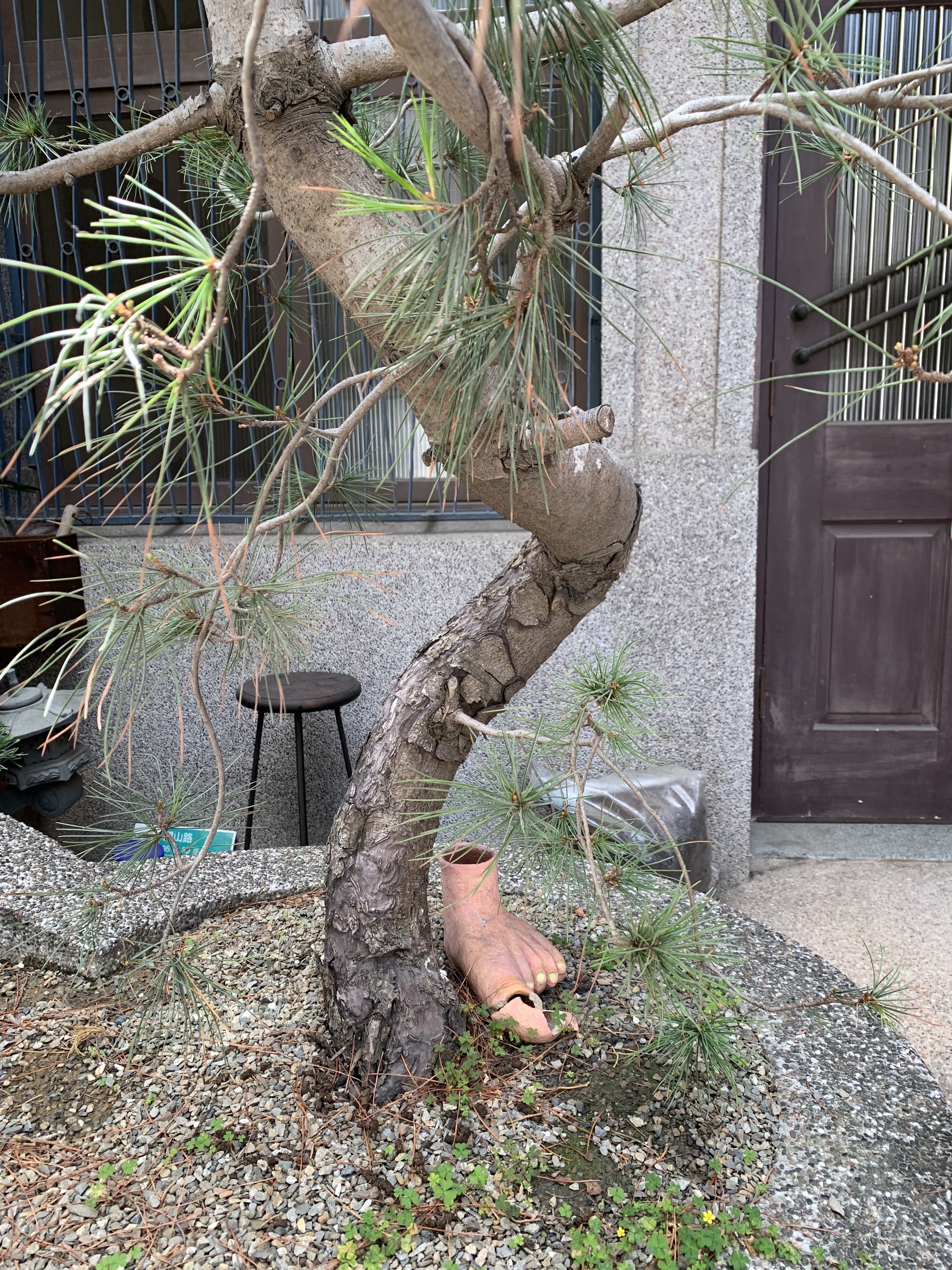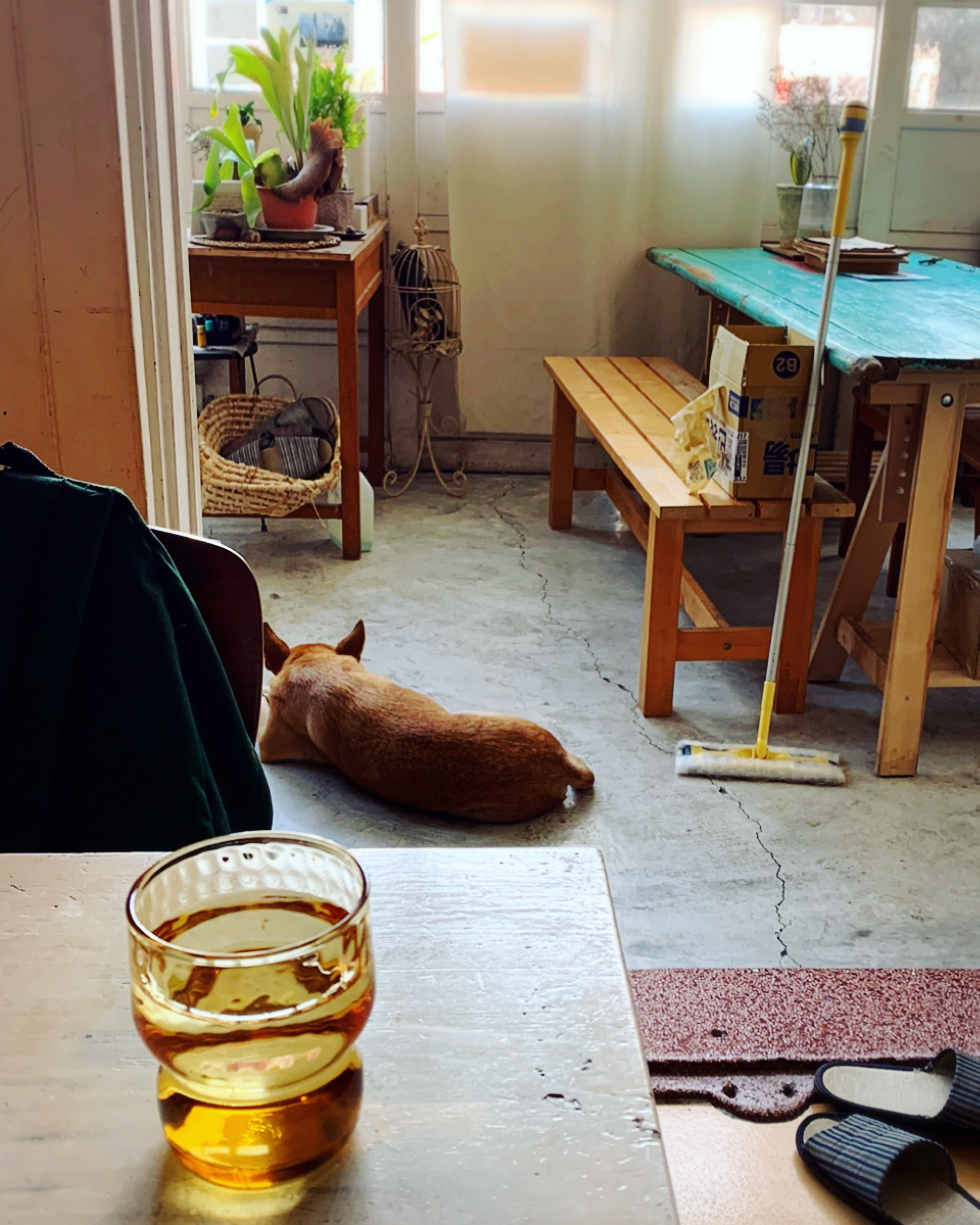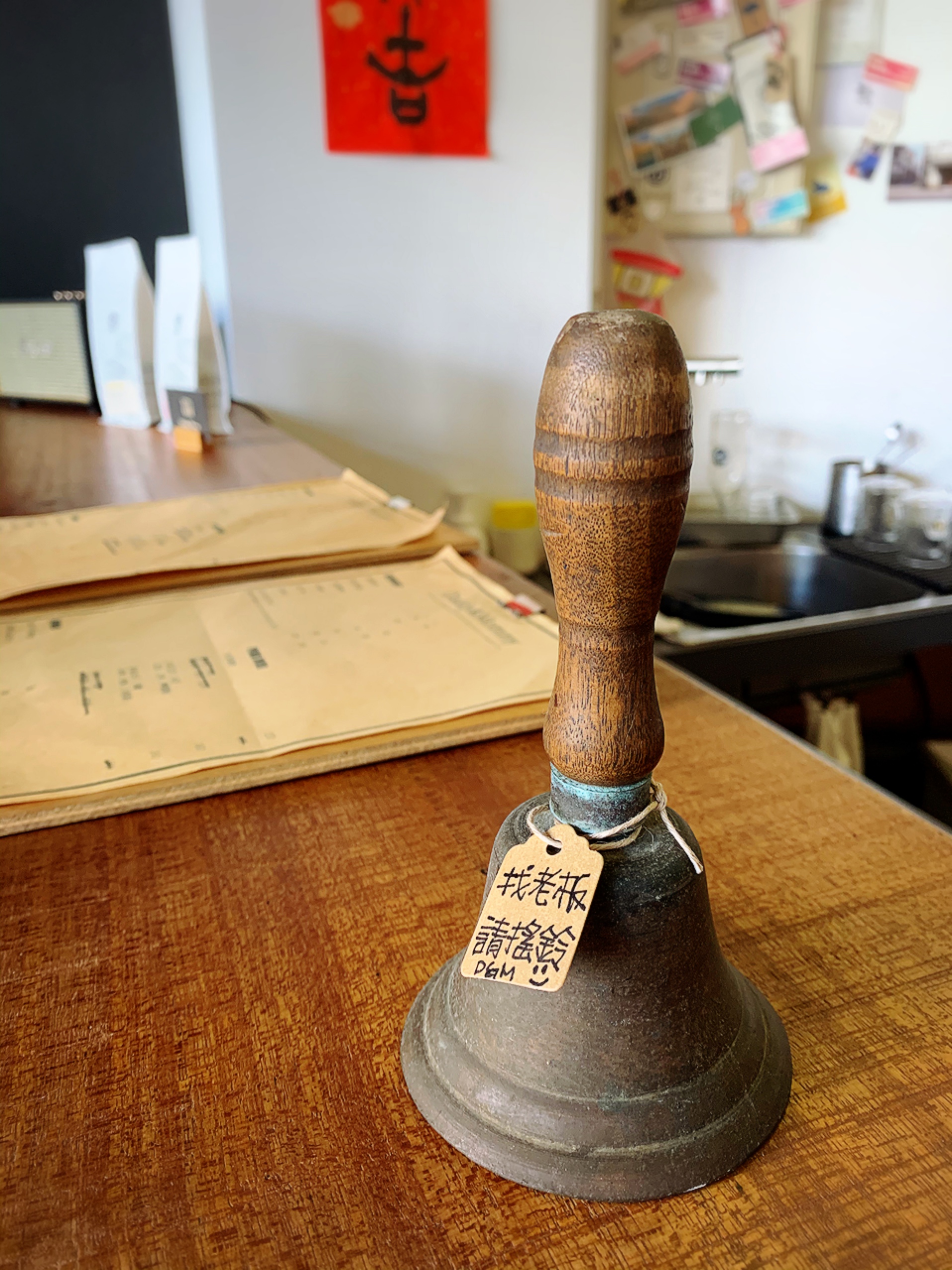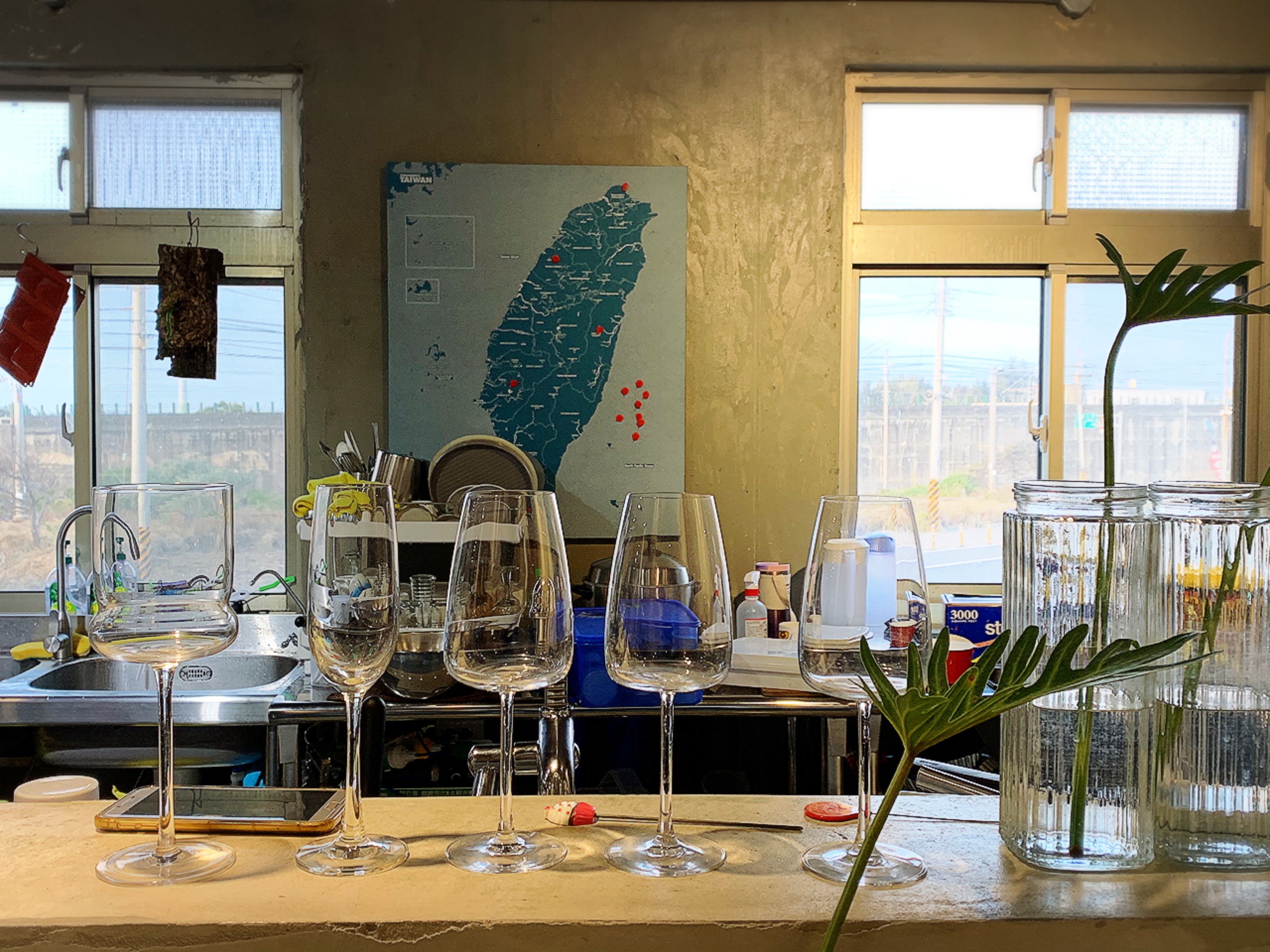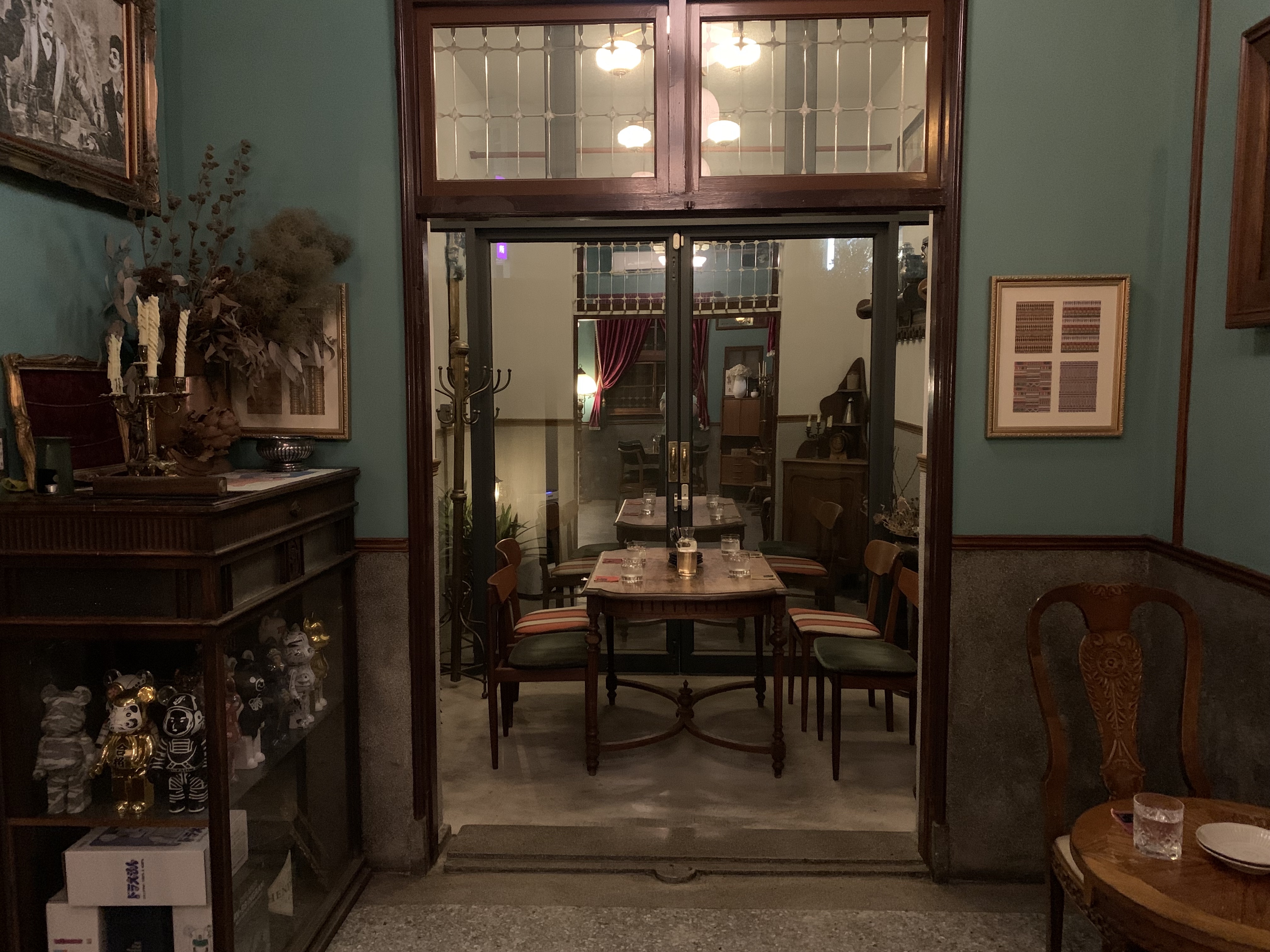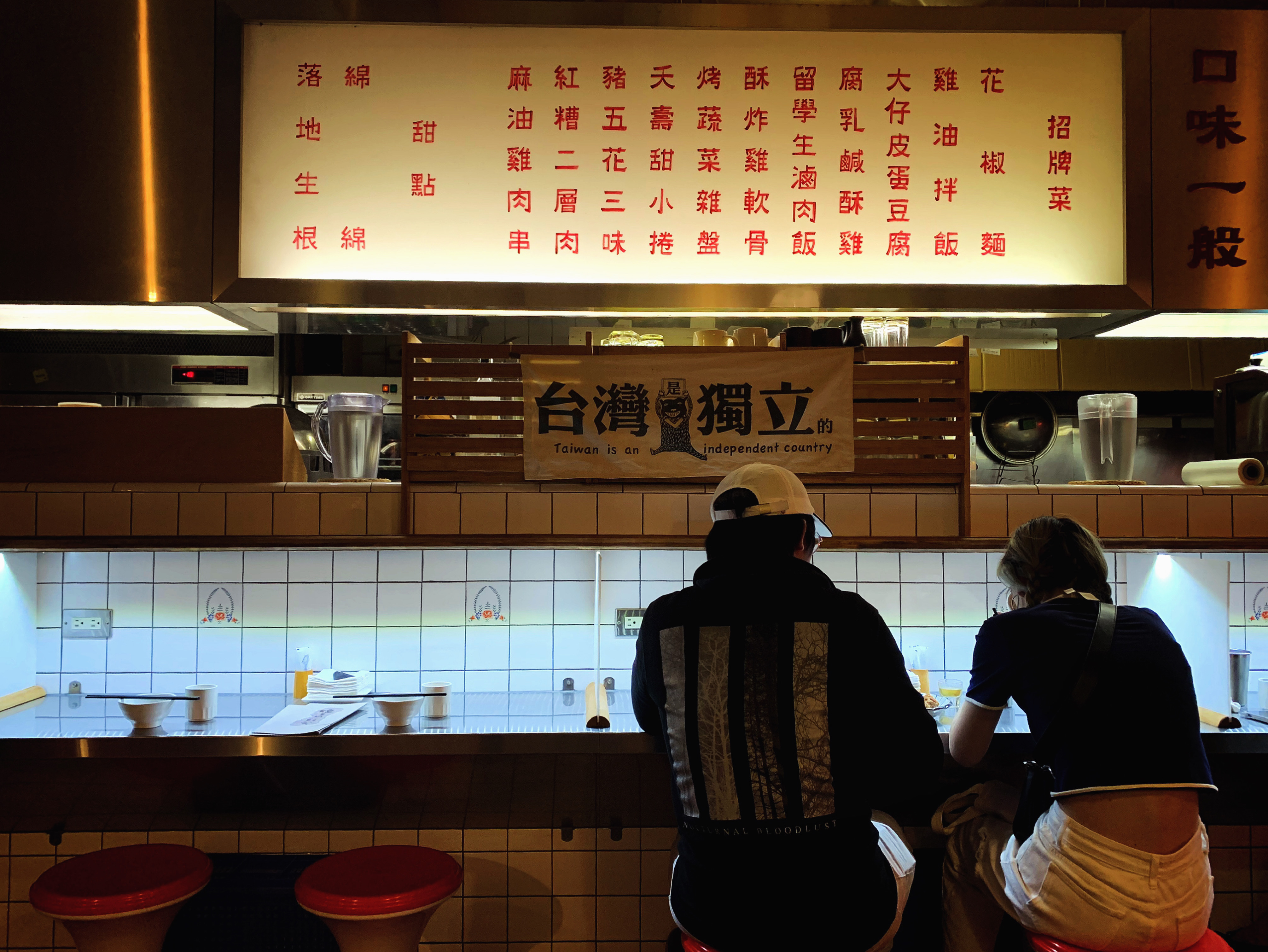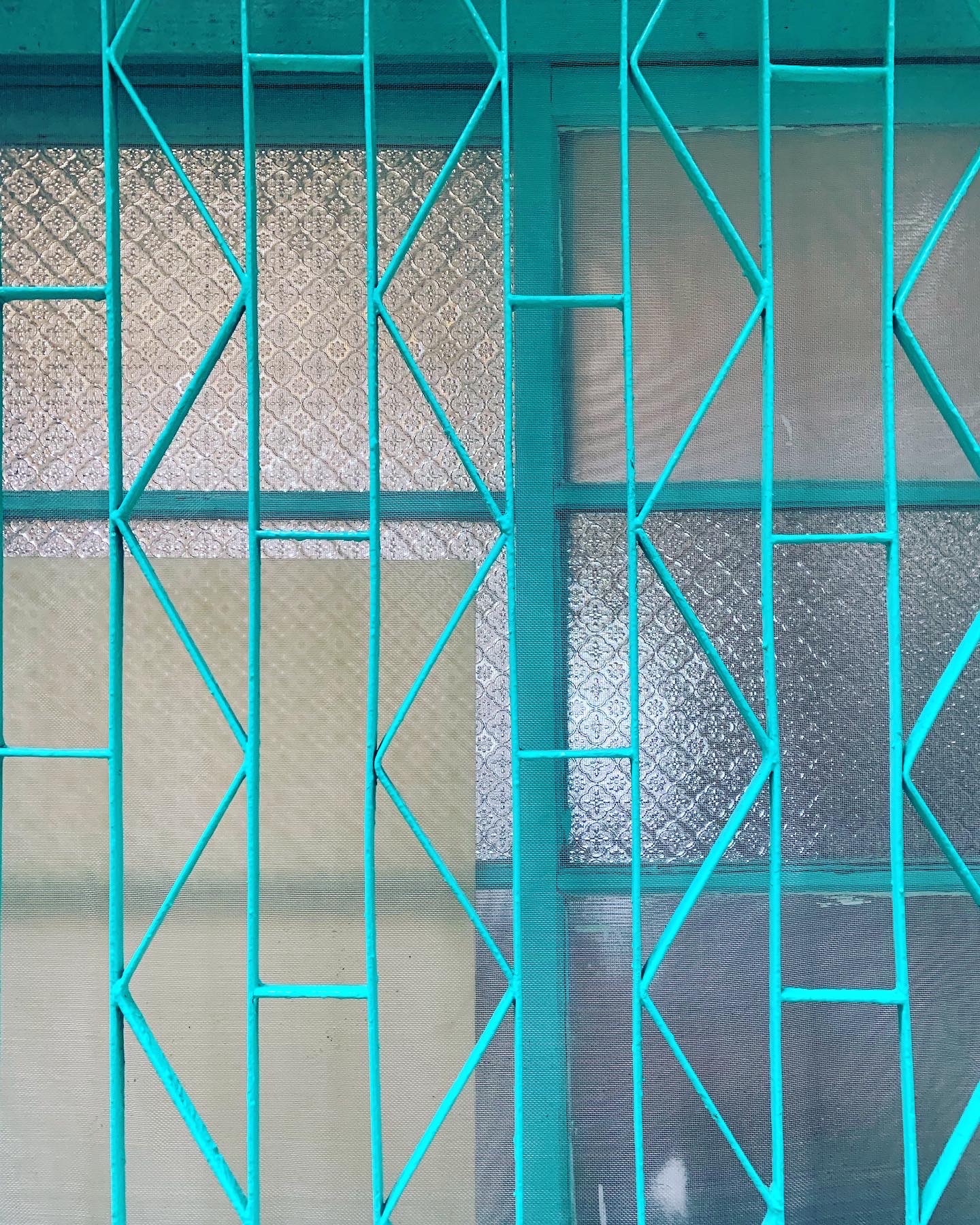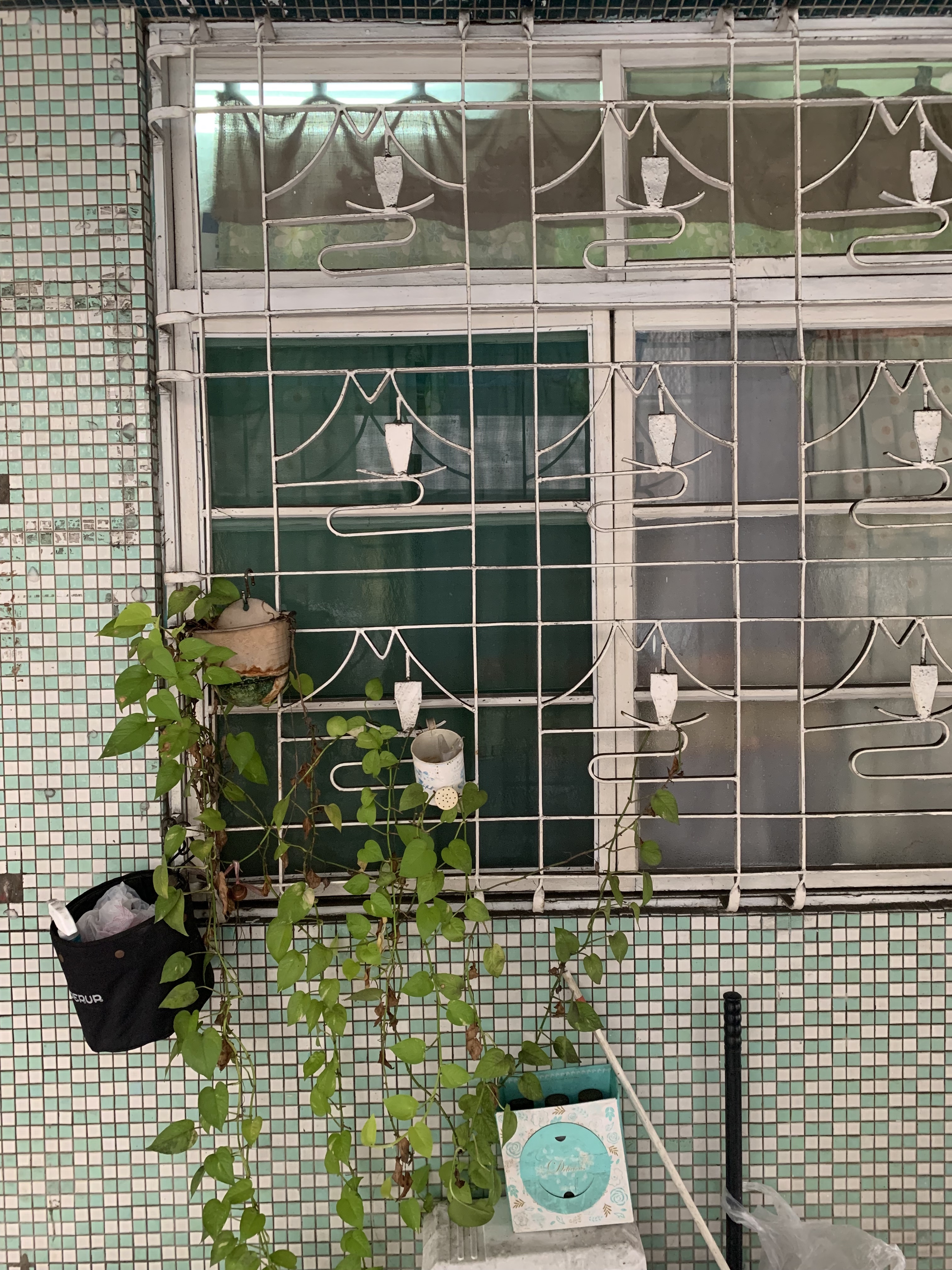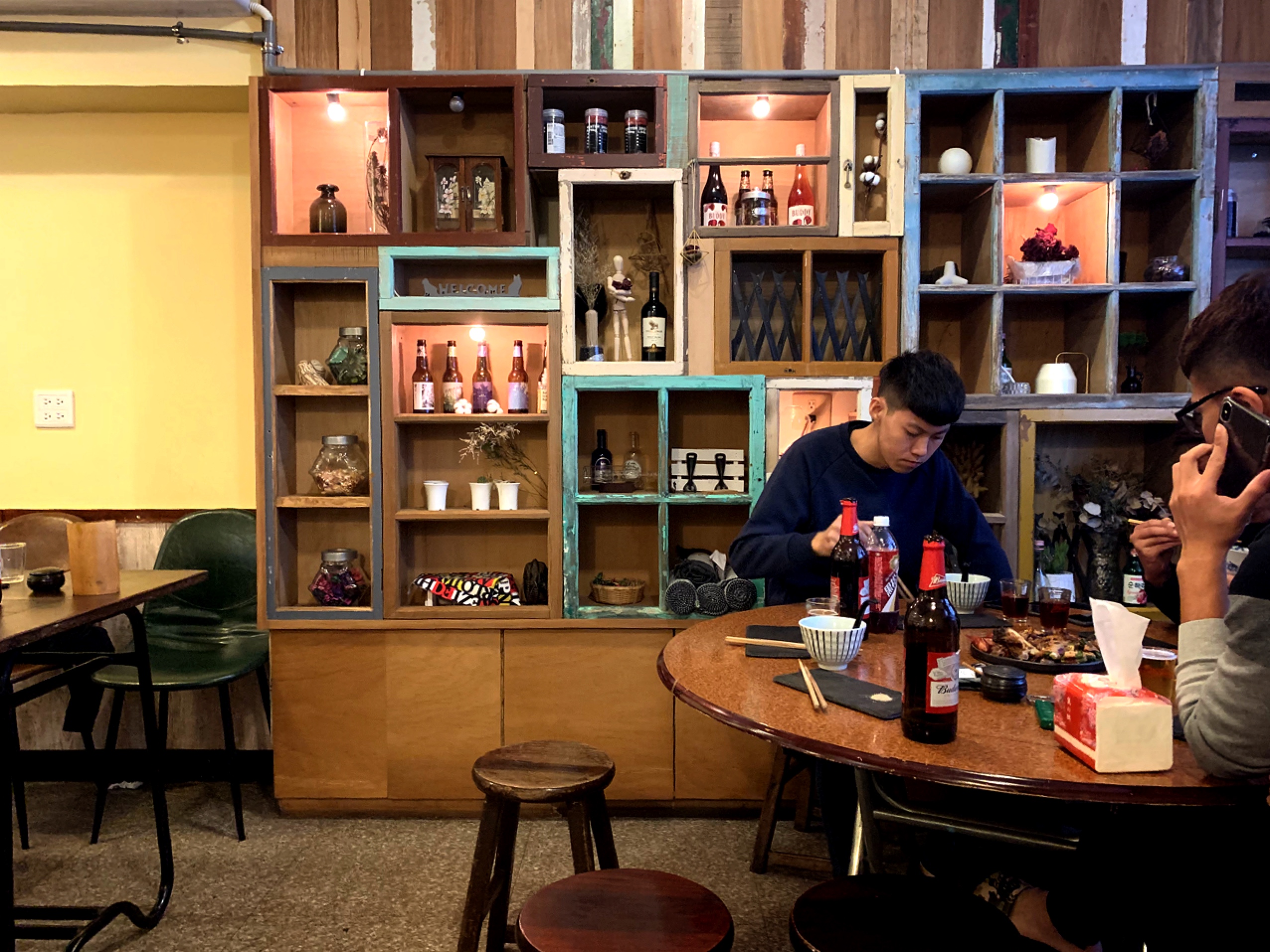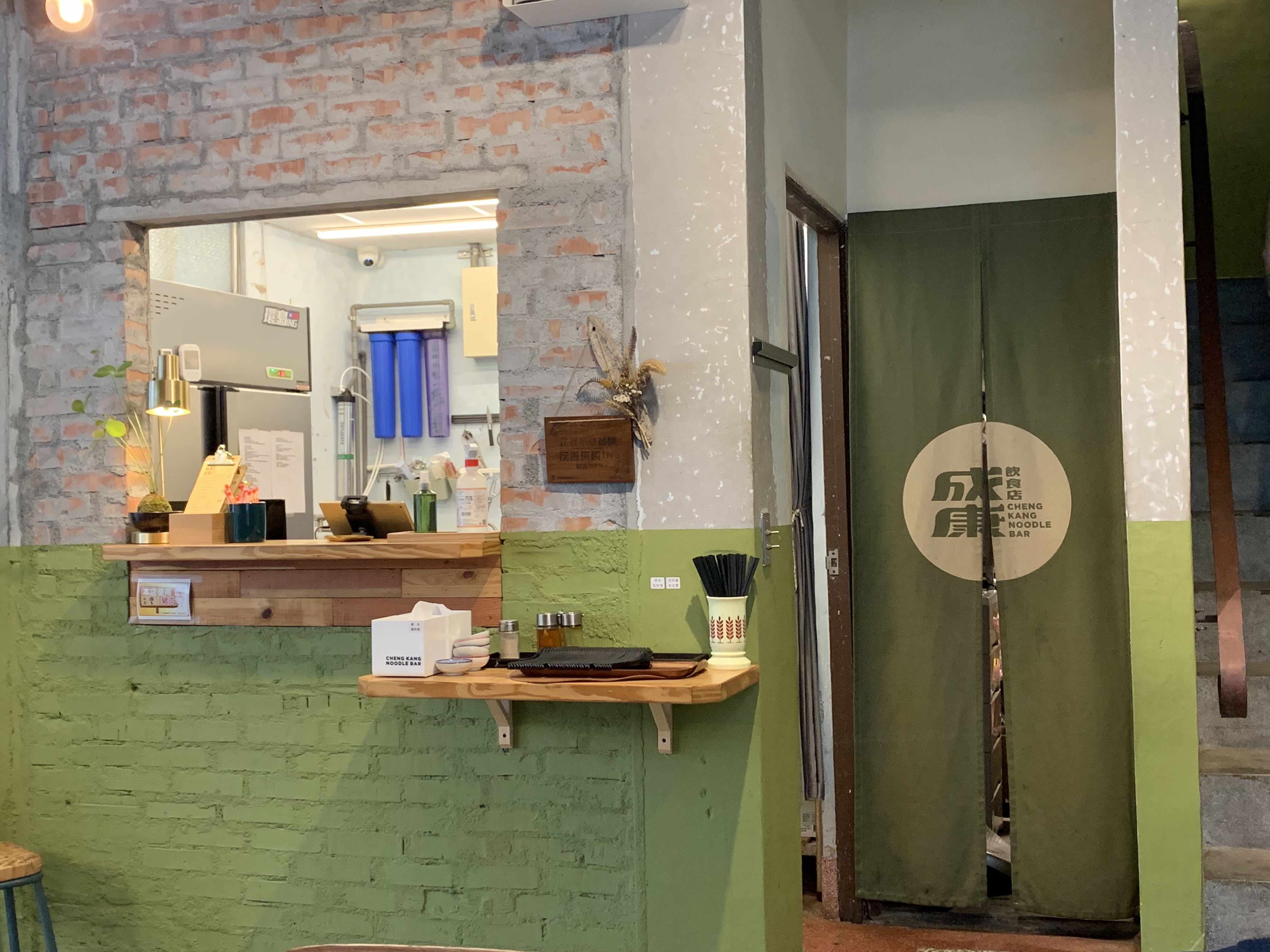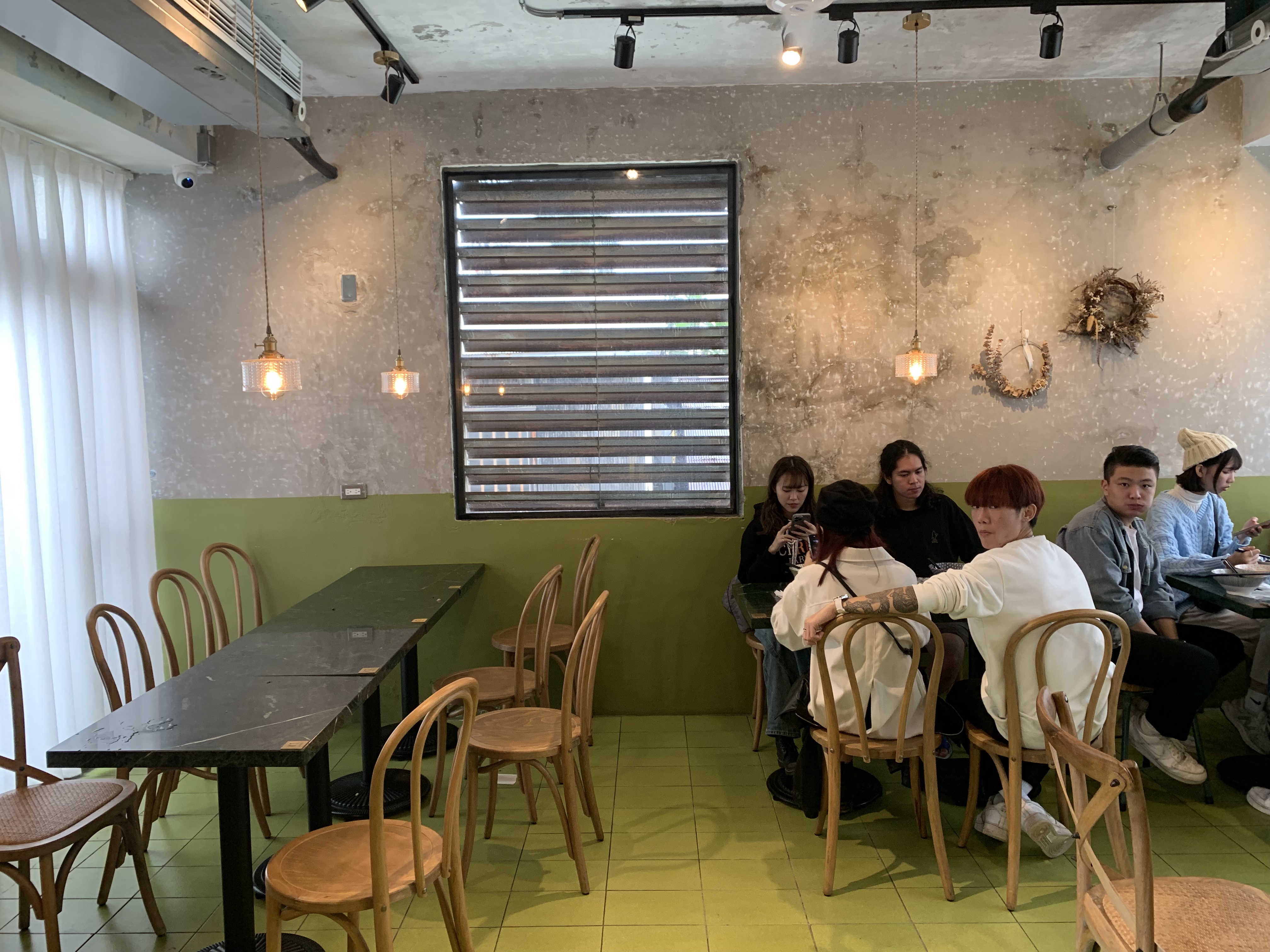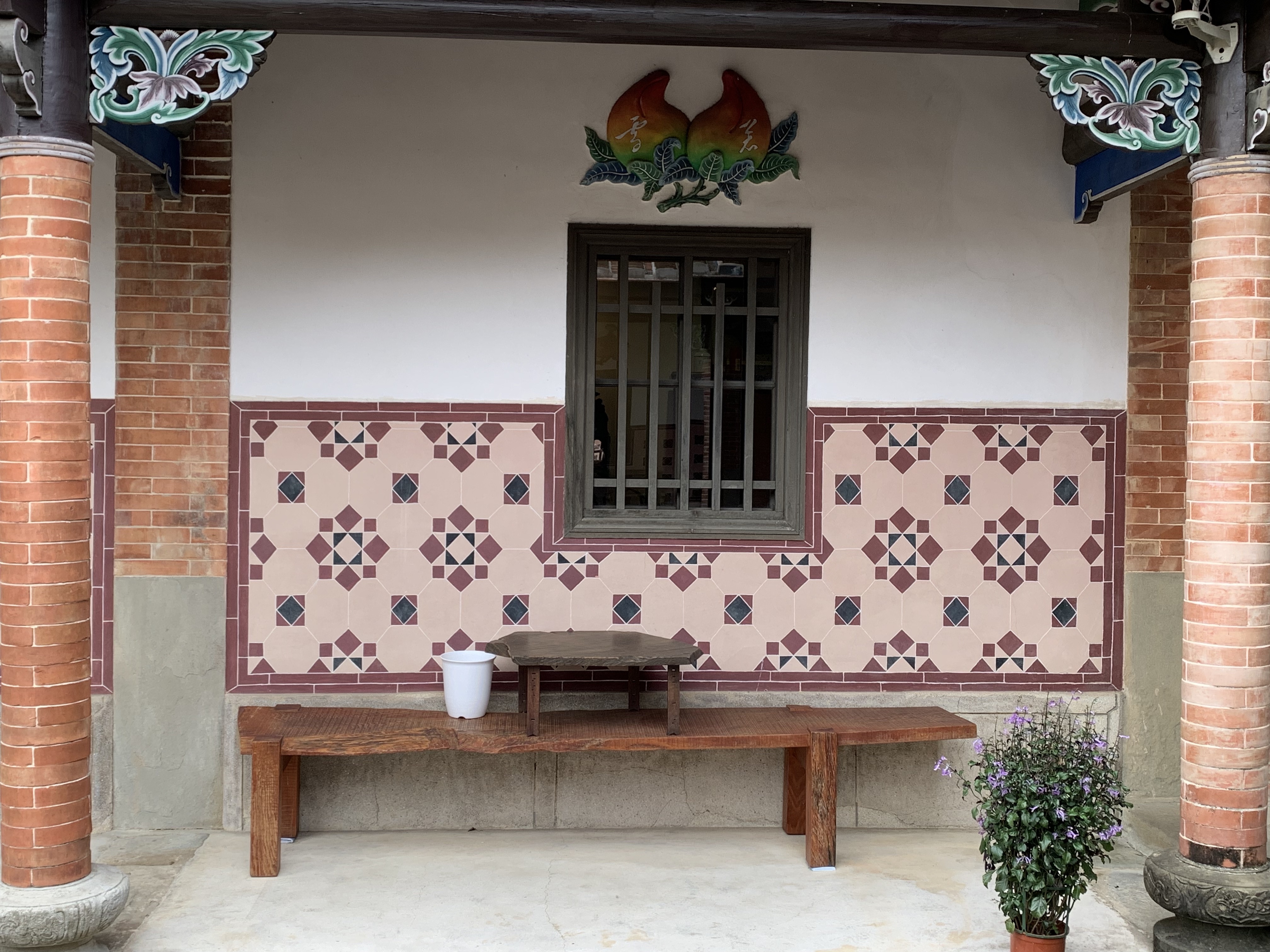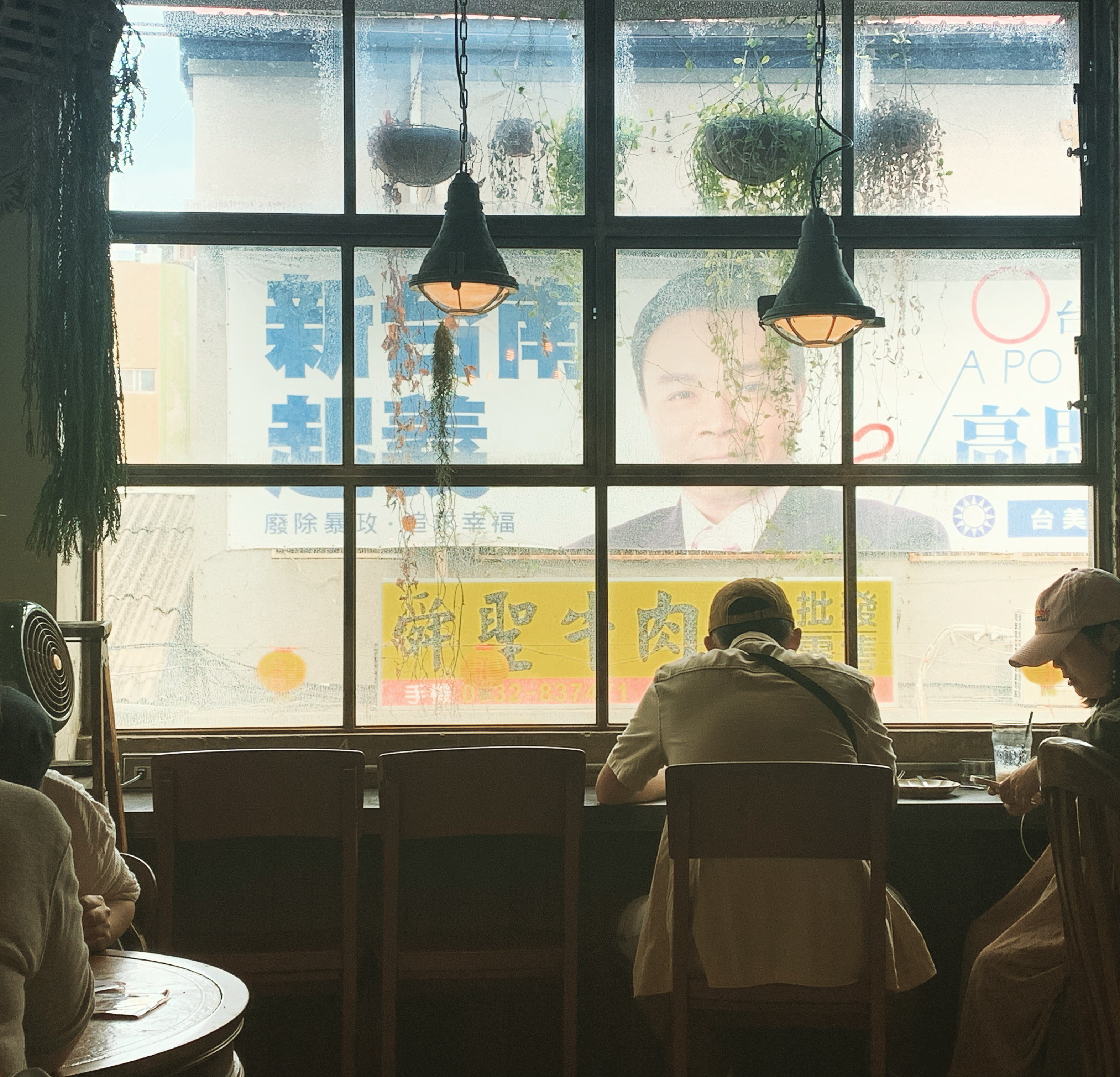He deserves an unflattering screenshot
I recently read with interest Donovan Smith's analysis of the continued relevance of former president and slightly burnt mannequin Ma Ying-jeou. Smith argued that despite being called "irrelevant" by the pan-green camp, that his power player position in the KMT meant he could not possibly be so.
Donovan makes a good point. When it comes to shaping KMT policy and which puppet or inveterate Very Good Boy he'll trot out as his skin mask at rallies and for elections, and whose prior image he'll eviscerate in order to turn him (they're always male) into his next puppet, Ma is frighteningly relevant.
In fact, I'd argue one cannot discuss KMT policies and directions without at some point discussing Ma. Even when he's not got his talons into this or that KMT candidate, his vision for what the KMT -- and Taiwan as a whole -- should be still shape the policies, platforms, desires and wet dreams of hardcore deep blue supporters. While their numbers may be dwindling, they're still a political force and not dismissed so lightly.
So yes, in that sense, Smith is right. Perhaps, though, we should consider what these commentators mean when they call Ma "irrelevant" -- because it depends somewhat on how you define the term.
The thing is, one might interpret political relevance as requiring being at least somewhat in touch with the general (or at least popular) consensus. You're relevant if your own ideas and commentary reflect the national mood, however roughly. If what you say resonates with the public and perhaps most importantly, the voters.
In this sense, Ma is indeed irrelevant. It would be easy to point to his Deutsche Welle interview just before the election. He laid down some real whoppers here. Leaving aside "Taiwan can never win a war with China" (debatable, but I'll give him that based on the power imbalance), Ma stated that we should "trust" Xi Jinping, a point so ridiculous that it was basically an own goal for the KMT. I don't think it lost them the election, but it didn't help. However, if we're talking about Ma's relevance, I found this bit more alarming (and mendacious):
Unification is something that our constitution says [sic]. So it's actually acceptable to Taiwan. But it has to be done peacefully, and through a democratic process. If that can be done, the chances are people in Taiwan may be interested in accepting this.
He says that again later on -- "if it is peaceful and democratic, the people of Taiwan will probably accept this." It's not a slip.
The constitution doesn't actually say that -- if it ever did, the series of amendments adopted from1990s through 2005 extirpated it -- but whatever. It's not even the ludicrous notion that unification could possibly be peaceful or democratic when the government Taiwan would be unifying with openly doesn't care about democratic norms, and their massive military preparations indicate they don't care much about peace, either.
What renders him irrelevant is the second half of that quote: the idea that because the constitution says it and theoretically it could be voted for (which would mean no immediate war), that "chances are" Taiwanese people would be "interested in" such a path.
Every major poll, whether we're talking status quo or Taiwanese vs. Chinese identity, and the past three presidential elections have shown that the people of Taiwan are not interested in peaceful unification. Whether or not it's peaceful is not the point; they don't want unification period. They want to continue to govern themselves under the sovereignty Taiwan has as a result of the so-called 'status quo'. That is, a form of independence (depending on how you define 'independence' -- my definition includes Taiwan's current state and so does President Tsai's).
For such a thing to be "democratic", Taiwanese people would have to vote for it in a state of non-coercion and without political interference from China. Ma seems to think they might, if dialogue continues. The polls, however, say otherwise. If unification is deeply unpopular, and most Taiwanese don't even identify as Chinese, chances are that won't change.
It wouldn't avoid a war, by the way. In the highly unlikely event that Taiwan chooses this path, once they see that they've quite literally used their democracy to vote away said democracy, and brought all sorts of oppression upon themselves the second they 'democratically' diverge from Beijing's plans for Taiwan, all hell will break loose. It will make Hong Kong look like a children's birthday party. There will be a war of some sort, and there will be violence and slaughter.
There is no such thing as peaceful unification with the PRC, because even if Taiwan 'agreed' to it (which they wouldn't, because most people are not that stupid), the mass death starts when they realize what they've lost and begin to resist.
To even imply that democratic and peaceful unification is possible, and that Taiwanese would be interested in it -- or that they'd be so gullible as to believe it were possible -- is such an extragalactically out-there thing to say with a straight face that I simply cannot reconcile it with any notion of "relevance". Ma's finger isn't even on his own pulse, if he has one, let alone the pulse of the nation.
He doesn't stop the Chundertown Express at any point during this interview, by the way. When it's pointed out to him that Taiwanese don't identify as Chinese, especially among the youth, and reject unification and the 1992 Consensus, he says those young people need to "understand" what cross-strait relations and the 92 Consensus mean "to them" -- one China, respective interpretations. He takes it for granted that this interpretation (which China has never agreed with, they've never accepted the 'respective interpretations' aspect, so it's not a consensus at all) would be popular and accepted among Taiwanese.
But it wouldn't, because to do so, they'd have to fundamentally believe they are Chinese, which they do not. (Ma does not engage with the poll results showing most Taiwanese do not identify as Chinese; most likely he believes that forcing pro-China changes to the education system will sufficiently brainwash that notion out of their minds).
His off-the-rails commentary (or lack thereof) on public opinion and what Taiwanese "will probably accept" is so far removed from what Taiwanese seem to actually be thinking that I simply cannot call it "relevant".
When the presidential candidate you taxidermied into your own little puppet boy publicly distances himself from your words, you might still be a political player but when it comes to public opinion and the path Taiwan is on, again, you're not exactly relevant.
On that note, Ma only remains relevant within the KMT because their stance on China has not evolved to be more palatable in Taiwan. You might argue that they're hanging onto him because they have nothing better -- he's the last KMT candidate to win a presidential election. I'd argue the opposite: the KMT's platform is stuck in the dark ages because Ma has his talons in it; he won't let it evolve or modernize.
I suppose that's a form of relevance, but not in the way most people likely mean.
To be truly relevant, you do indeed need to have some basic understanding of current public opinion, why it is what it is, and how to present your ideas in such a way that they might at least be considered in that light. Ma is constitutionally incapable of this -- pun intended.
It's not surprising, of course. This dude is deeply in love with Chinese-style authoritarianism and seems to wish more than anything that the KMT itself had the ability to be just as authoritarian. You know, like in the bad old days when they could just drag anyone who disagreed out back and shoot them.
Looking at it another way, consider commentary about Ma's irrelevance to be a backlash against the way he acts every time he goes to China, and much of the resulting media coverage. He certainly traipsed around that country like he was some sort of ambassador on an official dialogue and peace mission. Whatever part of his brain had a stroke leaving him unable to empathize with Taiwanese people seems to have been filled with delusions of grandeur, that he can represent a side of the 'Republic of China' that China can talk to, because they agree they're part of some interpretation of China.
Even basic reporting on the visit implied (without saying outright) that his visit was somehow relevant to Taiwan's current government, even though Ma wasn't there in any official role. He was basically a glorified tourist-cum-useful-idiot. Other media make it sound like he is some sort of rational, peace-seeking emissary with the potential to "build ties" and -- again it is implied -- reduce tensions. That no serving Taiwan president has visited China is mentioned in such reports to imply that it matters to Taiwan if a former president does so. But I'm not sure it does, when his party doesn't even have the presidency. In terms of Taiwan's policy vis-à-vis China, he is irrelevant and his visit is irrelevant.
I even heard a radio segment in the Western media on his visit that I can't find again (so it's not linkable), but which astoundingly managed to get every basic fact right, while getting the story completely wrong. It implied again that he is some sort of peaceful messenger from Taiwan, creating hopeful dialogue and averting war unlike that dastardly Lai Ching-te whom Beijing dislikes for unspecified reasons.
No discussion of how Ma's party had just lost the election in a historic third term for the DPP, possibly helped along a bit by that DW interview. No discussion of why Beijing dismisses Lai, or who exactly is refusing official dialogue (hint: it's not Lai). No mention of how unpopular Ma's opinions are in Taiwan, and how profoundly he misunderstands and outright ignores public opinion.
Listeners abroad who don't follow these issues might take that hopeful note to heart -- oh look, a former Taiwan president is looking for dialogue with China, that can only mean a reduction in tensions! They'll completely miss the context that he's not speaking for the government, his trips are not affecting current policy, it's not even Taiwan who doesn't want dialogue but rather China gumming up the process, and his views do not enjoy broad social support.
That is, the take-home impression might be that Ma Ying-jeou is more relevant than he actually is.
When that's what the rest of the world is reporting about the guy who left office as the most unpopular elected president in Taiwan's history, like he's a beacon of hope in ever-escalating tensions (which are implied to be created by the DPP when in fact they are entirely manufactured by China), then perhaps one does want to call him irrelevant in response, no?
Because he's not an emissary. He has no official role. He's not in China to build ties between the two governments, because he no longer works for the Taiwanese government. He's not "building cultural and social ties" because his own views are completely out of tune with Taiwanese society and culture. He's promoting himself and the KMT to their support base.
While he's not quite sunk to the level of "local resident surnamed Ma" or "Taipei area man", he doesn't enjoy the broad social respect that a former president might expect. According to one poll, less than 40% of voters approved of his last trip to China in 2023, and that one was ostensibly of a more personal nature.
Of course, it really wasn't: he was attempting to set the groundwork for the KMT's China policy, giving the KMT's presidential candidate less room to offer their own interpretation of cross-strait affairs. That worked for awhile, with Hou Yu-ih seeming to capitulate to Ma on matters of policy.
As we saw in the DW interview, however, Ma eventually seemed to take it a step too far and ended up with Hou declining to sign on to the broader Ma vision for the rejuvenation of the great Chinese nation.
Ma himself seems to think his actions, and especially these trips to China, have an effect on cross-strait relations, but from what I can tell, they don't. He seems to believe he can convince Taiwanese voters of the fundamental correctness of his vision, and their Chineseness. It has not worked. He tried to Frankenstein an opposition candidate to the DPP, and failed.
So when we say he's "not relevant", we mean that his actions do not reflect a broad social consensus and don't actually change much in Taiwan. When his actions are reported on as though he actually were the highly-respected elder statesman he believes himself to be, it gives the wrong impression to readers who don't know the whole context.
When Ma actually has a policy success as an elder statesman that enjoys the support of the electorate, maybe we can talk about his return to relevance. When he lays out a groundwork for cross-strait policy that the ruling party doesn't feel they have to distance himself from, that might matter. And it would be unfair to dismiss him as completely irrelevant. His lightly-melted spectre haunted Hou's campaign and continues to rattle his chains in the halls of KMT headquarters too much for that to be true.
But if you define 'relevant' as "taking actions which have a tangible impact on Taiwan's governance", or as "engaging in statesmanship which enjoys broad support", he's not exactly relevant, either. If you include "has some understanding of public opinion and incorporates it into his actions and statements", he's so deep in left field that he's left the stadium and is wandering alone in the woods. He doesn't even seem to understand that public opinion exists, let alone that he should consider it.
And if a rando in the woods babbles on and on about how Taiwanese will choose "peaceful unification" and no-one's there to agree with him, did he really say anything at all?








